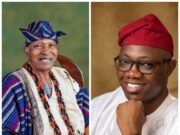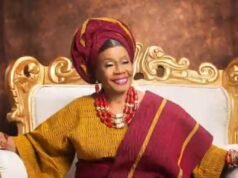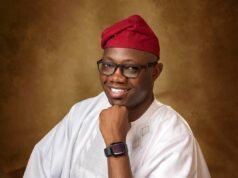The latest rise of Kemi Badenoch captures a complicated dynamics of her relationship with her Nigerian heritage, and the reactions it has sparked.
On one hand, her rise to leadership in British politics is an undeniably impressive accomplishment, especially given the barriers she’s overcome. However, her apparent willingness to distance herself from her Nigerian heritage—and to critique Nigeria itself—raises important questions about identity and cultural roots, particularly for Nigerians in the diaspora.
Kemi’s journey is not unusual for immigrants or children of immigrants, who often feel pressure to assimilate into their adopted countries, sometimes at the expense of their original cultural identities. For children of Nigerian heritage, navigating these spaces can be challenging. Yet, as the Yoruba ethos cited in the article suggests, maintaining respect and pride for one’s roots is crucial. “Omoluabi,” a concept emphasizing integrity, respect, and accountability, teaches that where we come from is inseparable from who we are, even if we build lives elsewhere. Kemi’s father, Fariga, was clearly shaped by these values, which gave him strength to advocate passionately for justice in Nigeria. In turning away from this legacy, Kemi risks losing something deeply meaningful—not only about her father’s values but also her own identity.
For children of Nigerian heritage in the UK or elsewhere, it’s essential to understand that embracing one’s roots does not conflict with becoming a proud citizen of an adopted country. Identities can be layered and complex; honoring one’s heritage can enrich one’s character and add depth to contributions within a new culture. In fact, multicultural perspectives are an asset, allowing individuals to draw on a broader range of experiences and values.
While Nigeria faces challenges today, its culture, values, and potential are not defined solely by its struggles. The country has a rich heritage of resilience, ingenuity, and hope, seen in the achievements of Nigerians worldwide in every field. Those from the diaspora have a unique role to play; by acknowledging and upholding the values of their heritage, they can work to change the narrative around Nigeria, counter stereotypes, and inspire pride in future generations.
For Nigerian youths in the UK, this means understanding that their heritage is a strength, not a burden. They don’t need to distance themselves from their roots to succeed. Instead, they should strive to be voices that bridge gaps, bringing the richness of Nigerian culture into spaces that might not fully understand it. Remembering their roots means recognizing the value in their history, upholding the legacy of their ancestors, and respecting their identity—even as they integrate into the wider society.
In this way, rather than seeing themselves as separate from Nigeria’s story, they become part of its future. And in this interconnected world, heritage and identity are powerful tools for creating a richer, more inclusive global society.
• Ademola Adeleke a Dental Surgeon writes from Manchester, UK.



































